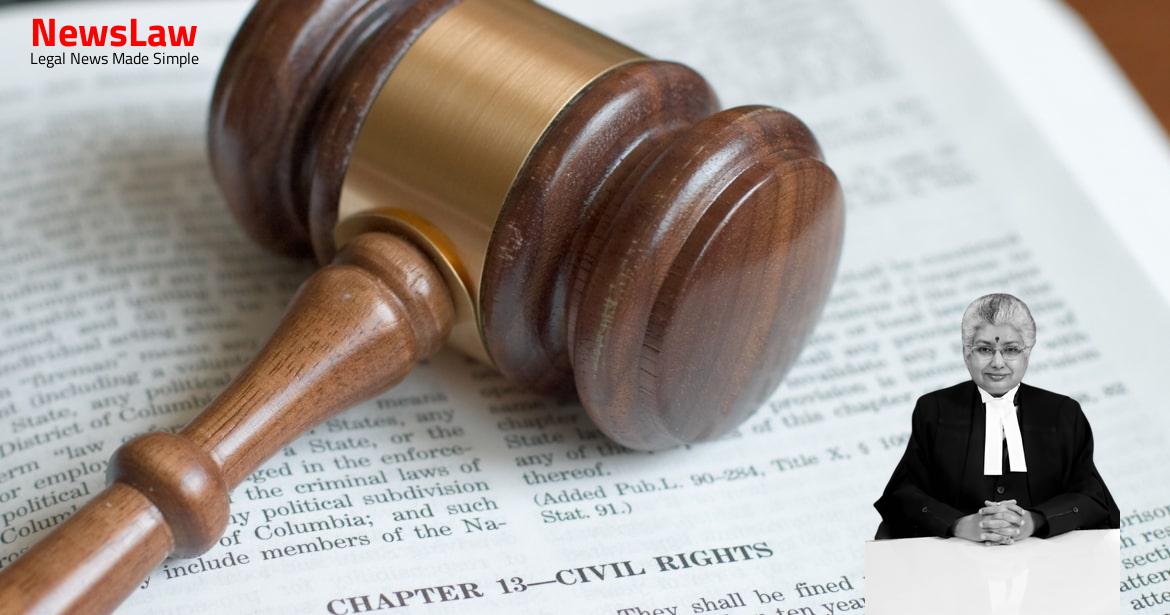In a recent legal case concerning drug manufacturing standards, the court delved into the complexities of director’s liability. The judgment emphasized the necessity for clear statements of fact to determine vicarious liability in a company under specific legal sections. The ruling provided insights into the responsibilities of directors in the day-to-day operations of a business, setting crucial legal precedents for corporate accountability.
Facts
- On 26 February 2007, test report received stating sample not of standard quality.
- Manufacturer informed of the test report.
- On 29 March 2007, CPPL requested samples for re-analysis.
- Samples sent for re-analysis on 24 April 2007.
- Appellants being Directors of the Company were summoned as accused.
- Summoning order challenged in Criminal Revision Petition.
- Appellants appealed to Bombay High Court against Sessions Judge’s order.
- Present appeal arising from dismissal of the criminal writ petition.
- CPPL granted permission to manufacture ‘Hemfer Syrup’ falling under Schedule C & C(1) of the Drugs & Cosmetics Rules, 1945.
- Drug Inspector purchased ‘Hemfer Syrup’ samples on 30 August 2006.
- Test report received on 10 July 2007 indicating non-standard quality.
- Complaint filed against manufacturer under relevant sections of the Act.
- Detailed letters exchanged regarding the testing and compliance of ‘Hemfer Syrup’.
- The High Court dismissed the Criminal Writ Petition as all Directors were involved in the business of CPPL and the manufacturing process.
- The Sessions Judge rejected the Criminal Revision Petition citing a specific averment in the complaint linking the appellants to the manufacture, distribution, and sale of ‘Hemfer Drug’.
Also Read: Presumption of Genuine Endorsements in Cheque Case
Arguments
- Manufacture of drugs must be conducted under active direction and personal supervision of competent technical staff
- Only the person in charge at the time of the offence can be deemed guilty under Section 34 of the Act
- Form 28 requires names of approved technical staff and any changes must be reported to the licensing authority
- Applicants must provide and maintain adequate staff, premises, and laboratory equipment as per Rule 76
- Head of the testing unit must possess relevant qualifications as per sub-rule (4A) of Rule 76
- Schedule M lays down good manufacturing practices including supervision by competent staff and independence of the quality control laboratory head
- Licenses granted in Form 28 require compliance with specified conditions
- Directors cannot be held liable solely based on their position without specific averments about their conduct in company business
- Manufacturing records must be signed by qualified personnel with testing experience
- Approval from regulatory authorities is required for key personnel involved in manufacturing and testing processes
- Submission made by Shri C.U. Singh regarding the duty of the Magistrate to arrive at subjective satisfaction before issuing process
- Absence of a formal order of issuance of process by the learned CJM questioned by Shri C.U. Singh
- Contrary submission by Shri Siddharath Dharmadhikari on compliance of Section 34 requirement in the complaint
- Reliance on judgments like U.P. Pollution Control Board vs Mohan Meakins Ltd. and Dinesh B. Patel vs. State of Gujarat to support arguments on issuing process
- Citation of the case of State of Haryana vs Brij Lal Mittal to emphasize legalities in proceedings against directors of companies
Also Read: Medical Negligence and Compensation: A Landmark Decision
Analysis
- Offence committed by a company under the Act holds both the company and the person in charge responsible
- The person in charge at the time of the offence is deemed guilty and liable to be punished
- The person can avoid liability if they prove lack of knowledge or demonstrate due diligence to prevent the offence
- Vicarious liability arises if the person was in charge and responsible for the business conduct of the company
- Being a director alone does not automatically make a person liable
- The complaint filed did not contain specific averments against the present appellants.
- The Magistrate must issue process if a prima facie case is made out, regardless of the likelihood of conviction.
- The discretion to grant or refuse process must be judicially exercised.
- A person cannot be made liable under Section 34(1) of the Act merely by being a director; they need to fulfill specific requirements.
- The order of issue process must contain the formation of the opinion that there is a sufficient basis for proceeding against the accused.
- If no reason is given in the order for concluding a prima facie case against the accused, the order can be set aside.
- Accused No.10 was approved as head of the testing unit, not being the managing director or whole-time director of the company.
- The record must clearly indicate the order of issuance of process, even if a formal order is not present.
- The Magistrate must apply their mind to determine if there are sufficient grounds for proceeding in a case.
- The law laid down by the Court states that a Director must be specifically averred in the complaint petition to be vicariously liable under Section 141 of the NI Act for offences committed by the company.
- Merely reproducing the words of the section without stating how the Director was responsible for the company’s conduct is not sufficient to establish liability.
- It is essential to specify in the complaint how and in what manner the Director was in charge of the company’s business.
- A Director is only liable if they were in charge of and responsible for the conduct of the company’s business at the time of the offence.
- The complaint should detail the duties and responsibilities of the Director in the company’s business to establish liability.
- Being a Director does not automatically make one liable under Section 141; specific averments are needed to show the Director’s responsibility.
- A person may be a Director but not know about the day-to-day operations of the company; their liability depends on their active role in the business.
- The judgment emphasizes the necessity for clear statements of fact to determine vicarious liability of a Director in a company under Section 141 of the NI Act.
- The role of a Director in a company is a question of fact and depends on the circumstances of each case.
- The specific responsibilities and role of a Director in the business must be outlined in the complaint to establish liability.
- Approach of presuming an order of issuance of process based on record found unsustainable in law.
- No order of issuance of process was actually passed by the learned Single Judge of the High Court.
- No reasons were provided in support of the presumed order.
Also Read: Remand of Writ Petition for Restoration and Decision on Merits
Decision
- The complaint against the present appellants is dismissed.
- The impugned order of issuance of process dated 30 March 2009 passed by the learned Chief Judicial Magistrate, Beed is quashed and set aside.
- The order passed by the learned Sessions Judge, Beed dated 25 November 2014 dismissing the Criminal Revision is also quashed and set aside.
- The appeal is allowed and the complaint shall proceed against the rest of the accused in accordance with the law.
Case Title: LALANKUMAR SINGH Vs. THE STATE OF MAHARASHTRA (2022 INSC 1061)
Case Number: Crl.A. No.-001757-001757 / 2022



